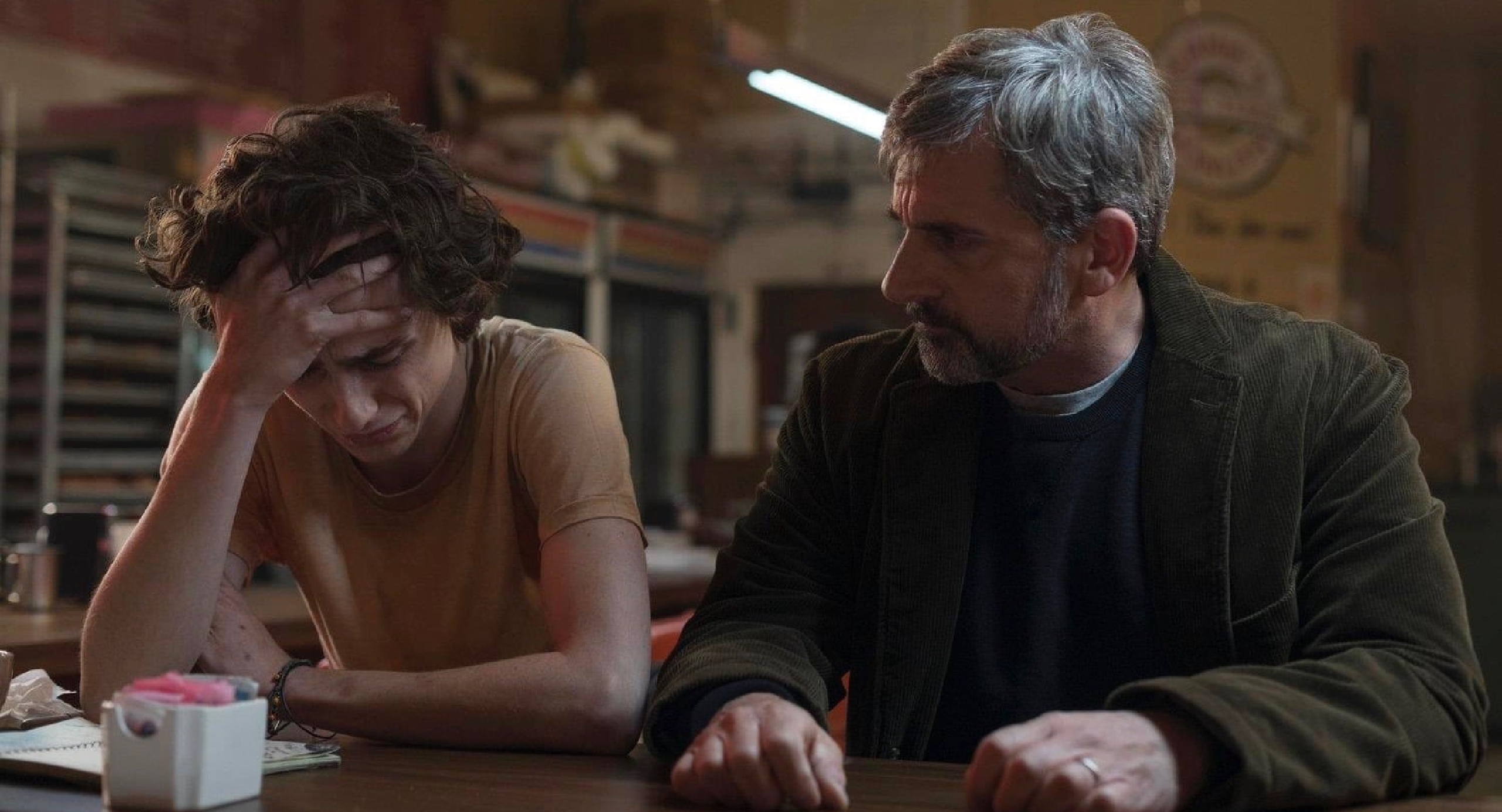Beautiful Boy – Film Review
Published August 29, 2023

Teenager Nicolas Sheff seems to have it all with good grades and being an actor, artist, athlete and editor of the school newspaper. When Nic’s addiction to meth threatens to destroy him, his father does whatever he can to save his son and family.
Director Felix van Groeningen delivers a poignant and harrowing exploration of addiction and its impact on families in the 2018 drama Beautiful Boy. With a powerful blend of heart-wrenching performances, masterful storytelling, and a deft directorial touch, the film resonates deeply as it delves into the tumultuous journey of a father and his son grappling with the demons of addiction.
At the heart of Beautiful Boy lies the gripping true story of Nic Sheff (played by Timothée Chalamet), a young man who spirals into the depths of substance abuse, and his father David Sheff (portrayed by Steve Carell), who struggles to understand, support, and ultimately save his son from the clutches of addiction. Van Groeningen’s direction steers away from sensationalism and instead opts for an intimate examination of the emotional rollercoaster that addiction drags both the individual and their loved ones through.
The film’s narrative structure is as compelling as it is unconventional. Rather than presenting a linear timeline, the story unfolds through a series of fragmented flashbacks and present-day moments. This artistic choice mirrors the fragmented nature of addiction itself, as the characters grapple with relapses, fleeting moments of hope, and the constant fear of an uncertain future. While this approach may occasionally disorient the viewer, it effectively captures the chaos and unpredictability of addiction’s impact on the lives it touches.
Steve Carell delivers a tour de force performance as David Sheff. Known primarily for his comedic roles, Carell proves his dramatic prowess by infusing the character with a raw and palpable emotional intensity. He navigates David’s journey from a place of ignorance and denial to one of fierce determination and understanding with a remarkable subtlety. Carell portrays the anguish and helplessness of a parent who realizes that love alone may not be enough to save his son, lending a tangible authenticity to the film’s exploration of the complexities of familial love.
Equally noteworthy is Timothée Chalamet’s portrayal of Nic Sheff. Chalamet captures the volatile nature of addiction with a haunting authenticity. His performance captures the desperation and vulnerability of someone trapped in a cycle of relapse, remorse, and the ever-elusive pursuit of sobriety. Chalamet’s ability to convey both the charismatic charm that draws people to Nic and the anguished isolation that keeps him trapped in his addiction is a testament to his exceptional acting skills.
Van Groeningen’s directorial choices play a pivotal role in the film’s emotional resonance. The visually striking juxtaposition of serene landscapes against the backdrop of harrowing moments of relapse serves as a metaphor for the stark contrast between the beauty of life and the ugliness of addiction. The director’s commitment to authenticity is evident in his depiction of the mundane realities of addiction, from the numbing monotony of rehab meetings to the visceral pain of withdrawal. By refusing to sugarcoat the experience, van Groeningen ensures that the film remains a hard-hitting exploration of addiction’s impact.
The supporting cast further enriches the film’s narrative tapestry. Maura Tierney delivers a nuanced performance as Karen Barbour, Nic’s stepmother, who wrestles with her own conflicted emotions as she grapples with the evolving dynamics within her family. Amy Ryan, in the role of Vicki Sheff, Nic’s mother, brings a mix of vulnerability and resilience as she navigates the heartbreak of seeing her child battle addiction. Their interactions with David showcase the complexities of co-parenting in the face of addiction and contribute to the film’s exploration of the ripple effects of substance abuse.
The film’s emotional potency is heightened by its evocative soundtrack, which weaves together a mix of original compositions and carefully selected songs. The music serves as a subtle yet impactful backdrop to the characters’ experiences, accentuating moments of despair, hope, and quiet introspection. The film’s meticulous sound design further immerses the audience in the characters’ tumultuous journey, making every emotional beat resonate on a visceral level.
Beautiful Boy is an emotionally devastating and profoundly moving exploration of addiction, recovery, and the unbreakable bonds of family. Felix van Groeningen’s directorial finesse, combined with the exceptional performances of Steve Carell and Timothée Chalamet, ensures that the film remains an intimate and authentic portrayal of the harsh realities of addiction. By unflinchingly delving into the complexities of addiction’s impact on individuals and their loved ones, Beautiful Boy emerges as a cinematic triumph that prompts reflection, empathy, and a renewed appreciation for the strength of the human spirit in the face of adversity.
